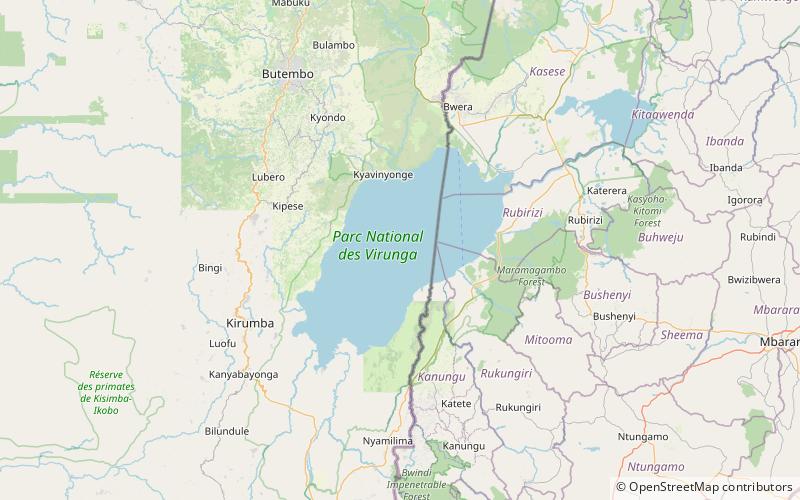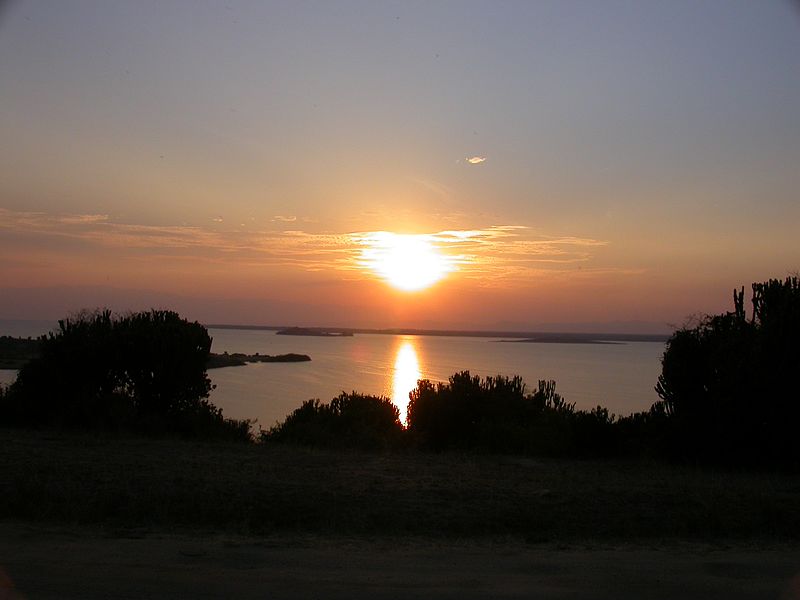Lake Edward


Facts and practical information
Nestled within the tumultuous heart of Africa, Lake Edward graces the eastern frontier of the Democratic Republic of the Congo, sharing its tranquil waters with the border of Uganda. This vast body of water, part of the African Great Lakes system, is a natural reservoir of biodiversity and a cornerstone for local communities.
Spanning an area of approximately 2,325 square kilometers, Lake Edward is the smallest of the African Great Lakes. Despite its relatively modest size, its importance cannot be overstated. The lake is a crucial habitat for numerous fish species, which in turn support both the Congolese and Ugandan populations through fishing—a vital economic activity in the region.
The lake's surroundings boast an array of wildlife, as it lies within the Virunga National Park in the Congo and the Queen Elizabeth National Park in Uganda. These protected areas provide sanctuary to a variety of mammals, birds, and reptiles, making Lake Edward a prime location for eco-tourism and wildlife observation.
However, Lake Edward is not just a serene paradise for nature lovers; it has also been a witness to the region's tumult. The area has seen its share of conflict, and conservation efforts have been challenged by political instability and resource exploitation. Despite these adversities, the lake remains a symbol of natural beauty and resilience.
Nord-Kivu
